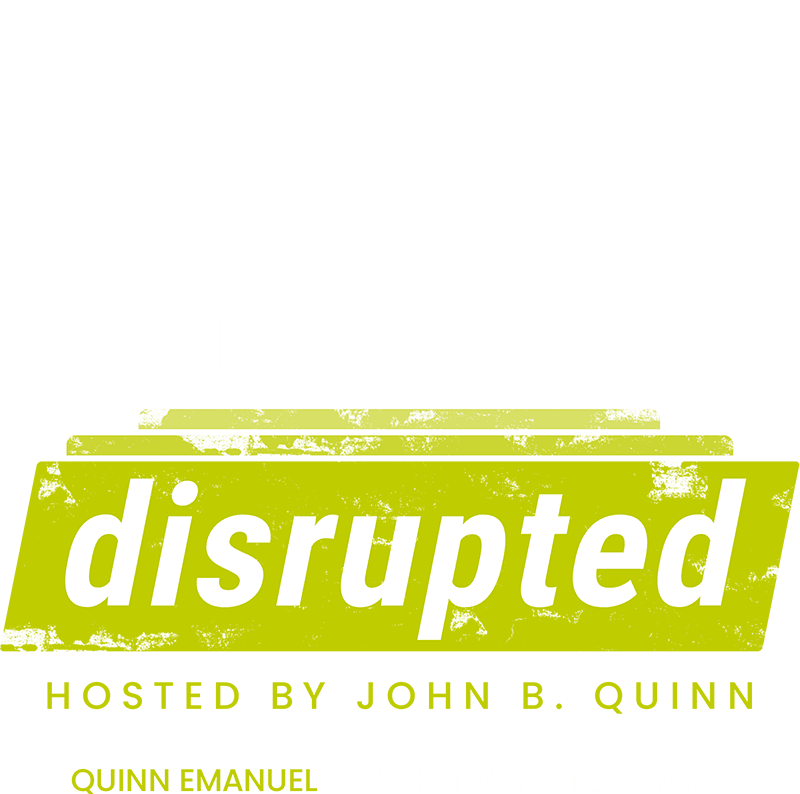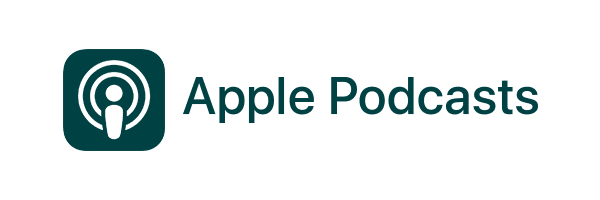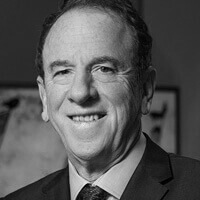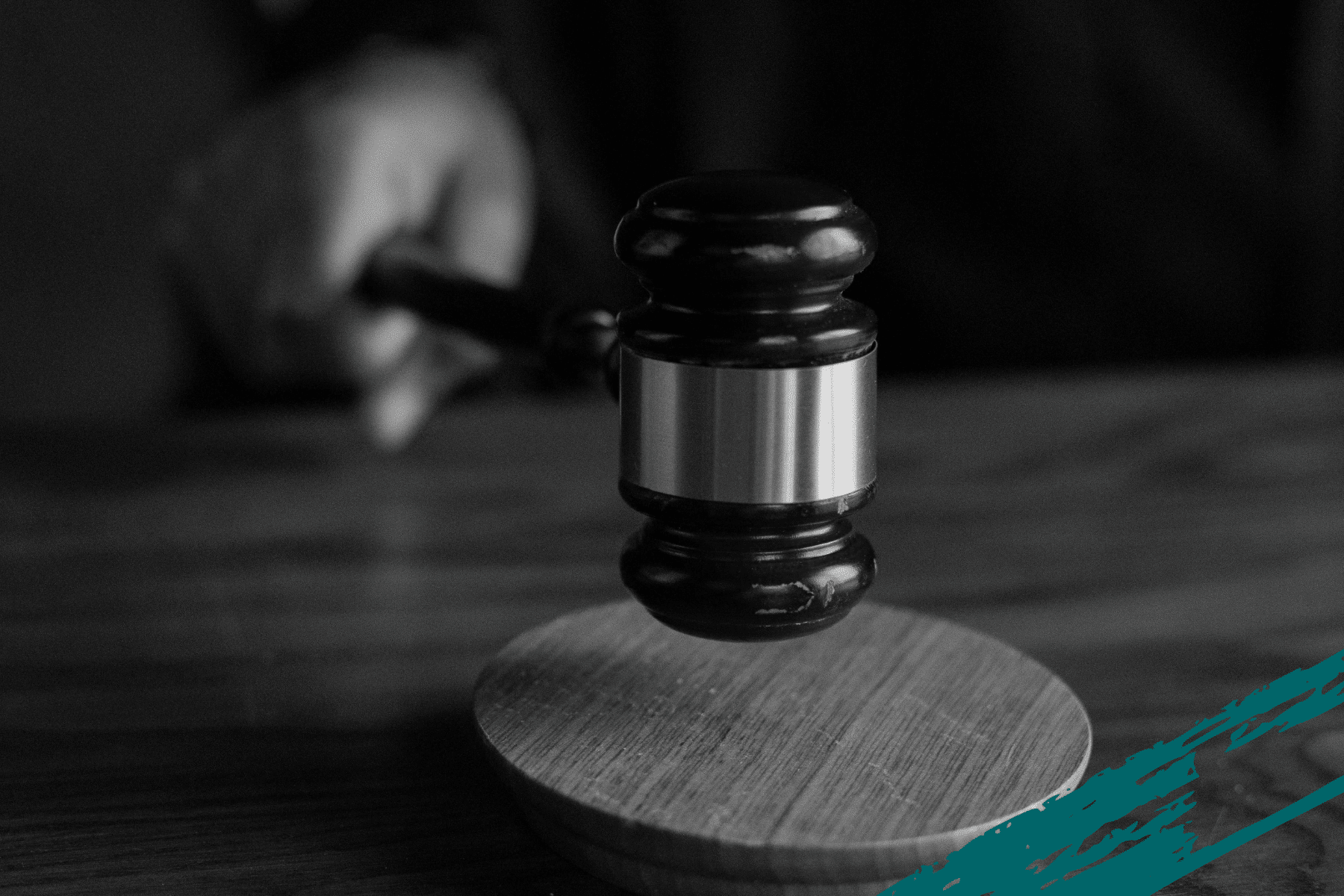Episode transcript:
Note: This transcript is generated from a recorded conversation and may contain errors or omissions. It has been edited for clarity but may not fully capture the original intent or context. For accurate interpretation, please refer to the original audio.
JOHN QUINN: This is John Quinn here. This is Law disrupted and today we’re talking with two of my terrific partners who practice in the intellectual property area. Dave Nelson, who’s based in Chicago, but spends a lot of time on airplanes, and Alex Lasher, who’s based in Washington DC and he’s kind of a specialist, so that’s the International Trade Commission in Washington DC.
I want to talk about an incredible victory that the team that they were part of, won for our client, Samsung Display in the ITC against a Chinese competitor, their principal and most important global competitor. And let’s start out by explaining to the audience, because there’ll be some people who don’t know what is the ITC?
Alex, you wanna take that? Explain what the ITC is.
ALEX LASHER: So quick history lesson ITC was established by Congress back in 1916 to basically manageand investigate trade issues and it really gained prominence right after the Great Depression when Smoot and Hawley put together this statue.
JOHN QUINN: Alex, this is not a history podcast.
ALEX LASHER: I gotcha.
JOHN QUINN: You started back in 1960?
ALEX LASHER: Well, look, it’s relevant for today, John. Yeah, I mean, look, they boosted tariffs. Everybody hated it, and that’s where we are. But one thing it did was it created the ITC, which is a governmental body that governs trade disputes.
One area it focuses on is IP rights, and that’s what, that’s what Dave and I deal with. So, patents, trademarks, trade secrets, et cetera, that are violated when goods come into the U.S. So that’s the ITC in a nutshell.
JOHN QUINN: How’s it different? Everybody knows you bring cases in the United States district courts for patents and trade secrets and IP and copyrights and the like. What’s the special role of the ITC?
ALEX LASHER: Yeah, that’s a good question. The ITC can’t give money damages. What it gives is injunctive relief, which is a pretty powerful tool if you’re keeping out a whole variety of goods from the U.S. market. So that’s what the benefit is.
JOHN QUINN: The way I’ve always thought of it, it’s sort of to stop the infringing goods at the border. As I understand it, it’s an accelerated procedure, specialized tribunal where there’s determinations of infringement or theft or whatever and they can issue exclusionary orders as I understand it. Yeah, that’s right. And I’ve always thought of the ITC as involving patents and patent infringement, but this case involved trade secrets.
Dave I think a lot of people may not realize that the ITC can also protect trade secrets.
DAVE NELSON: Yeah. It can protect, I mean, really any unfair competition. But trade secrets, I would say in the last 8, 10 years has become much more popular in terms of enforcement in the ITC, but there’s nothing new about that.
It’s always something that could have been a basis for the claim. And I’d say generally, and Alex can comment on this better than I can, but generally speaking the law that’s followed for trade secrets in the ITC is pretty similar to what you’d see in a Uniform Trade Secret act or the Defense Trade Secret Act.
It’s not vastly different, although as Alex can comment, it’s not exactly the same either.
JOHN QUINN: Well, is it basically a federal trade secrets law?
DAVE NELSON: Well, yes and no. That’s what I was trying to explain is it’s kind of the ITC’s interpretation of that. So it isn’t directly any of those things, but for all intents and purposes, that’s a good way to look at it.
JOHN QUINN: Alright. Well, process and the way decisions are made and the structure of the whole proceeding is very different than in the United States District Court. You don’t have a jury, you have an administrative judge, is that what they’re called? Alex? Yeah. Administrative law judge. And then you have this weird, which I have a hard time getting my mind around, where a participant is basically the staff. Can you explain that to the folks?
ALEX LASHER: Yeah. So the ITC has this independent group within the commission that acts as a neutral third party. They could take discovery, they can ask questions of deposition, they write briefs, they cross examine witnesses. And in fact, our staff has a very, very smart, diligent guy who did a great job at trial. But yeah, they’re an independent fact finder who then will give their view to the ALJ as part of the ALJ’s decision.
JOHN QUINN: I mean, so in the courtroom, are there like three advocates? Tables, you know? Yeah. For the claimant, the respondent and the staff attorney.
ALEX LASHER: Yeah, that’s right.
JOHN QUINN: That sounds so weird. That sounds so weird to me. But I guess, having them on your side is kind of an important thing. If you can manage to do that.
ALEX LASHER: It certainly can help. I would agree with that. It certainly helps to have an extra advocate on your side.
JOHN QUINN: And do they actually make a submission to the a ALJ at the end of the day?
ALEX LASHER: They do full briefing, like I said, full briefing, participate, cross exam, depositions. The whole thing.
JOHN QUINN: Yeah. Wow. That’s different. Yeah, Dave. Well, does that create, I mean, you’re a trial lawyer, that’s all you do, that’s a different dynamic I would think.
DAVE NELSON: Yeah, I mean, it certainly is a different dynamic in the sense that there’s yet another party that can cross-examine a witness or raise certain issues, and so you’re not just dealing with the adversary and the staff may have a different angle because of the positions they’ve taken in the case. So yeah, it certainly does create a somewhat different dynamic, both in what your strategy is in cross-examining witnesses as well as preparing your own witnesses for going up for testimony. But it’s not that odd. You know, you have a lot of interaction with the staff.
The staff, as Alex said, files papers, just like the parties do, so you know what the staff’s positions are. The one thing in that an ITC case is even more than a district court case, cases going in because it has to be in the pre-hearing briefs, so everything’s kinda laid out, which helps with the strangeness of the process of having the extra party involved, I think.
JOHN QUINN: Do you think the staff attorney has more credibility with the judge, the need of the advocates or the party’s attorney?
DAVE NELSON: The answer to that depends. Often times they would, particularly given things like admissibility issues and things like that, where the staff is viewed to be a more neutral, evaluator of those things. But you know, the fact of the matter is you’ll see the ALJ disagree with staff objections or staff positions just like they will the parties. But you know, I think it kind of depends on the A LJ too and also the staff.
JOHN QUINN: Okay. Well, let’s turn to this case that we’re talking about today. Where you got this incredible victory for our client Samsung Display against their largest competitor, a Chinese company, BOE Technology Group, where you got an order, a determination, that over a period of, I guess a couple of decades. There were thefts of trade secrets in a very broad exclusionary order. Alex, can you tell us about, you know, kind of summarize for us what the case was about?
ALEX LASHER: Yeah, so the trade secrets issue there, I think we started with a lot, a hundred of them or so.
They all relate to OLED technology that goes into displays, whether it be TV, smartphones, micro displays. In a nutshell, the BOE had stolen a variety of those, used them to make competing products, and then brought those competing products into the U.S., which is what gives the ITC its jurisdiction.
And you know, through Dave and our trial team, we were able to prove it up, which is great.
JOHN QUINN: How did they steal these trade secrets? They hire employees or what?
DAVE NELSON: So those are a little bit more difficult to answer because a lot of that is gonna be CBI issues, meaning designated confidential business. But certainly that, at a public, at that level, it is public information. So we can say that was at least part of the basis for, you know, this employee mobility and those types of things.
JOHN QUINN: Alright. What were the particular challenges in preparing this case? The client comes and says, I assume that we think our competitors are using our intellectual property.
I assume that it wasn’t all just obvious. Alex, what, what did you have to do to work up this case? What were the particular challenges?
ALEX LASHER: There are a lot of challenges, John. There’s actually quite a few in this case. I mean, we have one, a trade secret case is going to be highly fact specific, and so discovery is critical.
Obviously, BOE is a Chinese company. There’s a language barrier there. There’s extra things that you have to prove when you go to the ITC. For example, you have to prove that what the trade secrets that were stolen or imported through products into the U.S. you have to show that there is a domestic industry in the U.S. that’s worthy of protecting.
You have to show that domestic industry was injured. So there’s a variety of obstacles that you don’t have in your typical patent case, but I don’t know what Dave thinks. But I think the biggest obstacle is really obtaining the factual evidence that is largely in Chinese and maintained by a Chinese company.
That to me, I think is probably the biggest single obstacle.
JOHN QUINN: Those sound like pretty big obstacles.
DAVE NELSON: Yeah. I mean they are, and I think another obstacle in a situation like this, but that doesn’t make it unique to this trade secret case, but trade secret cases in general is being able to identify what you’re claiming as the trade secrets, which you need to do upfront before you get the discovery, because there’s always a tension between exactly how you describe those things in words and what it is ultimately you are going to be trying to prove of, and you’re making those determinations before you actually get to see a lot of the information from the other side.
So I think that makes things particularly challenging. So when you add in the fact that, as Alex said, on the defendant’s side, the documents were largely Chinese language, the documents that we had to go through and even to do the identifications of things from our own client were mostly Korean language. So, we had challenges on both sides.
JOHN QUINN: It sounds like the requirement is kind of similar to what you have in California and maybe other states too.
DAVE NELSON: It’s not far different.
Yeah. I mean, in California, of course, before a plaintiff in a trade secrets case can commence discovery, they have to identify the claim trade secrets with quote unquote reasonable particularity before they can start discovery. And, you know, that requirement makes a lot of sense because otherwise plaintiffs would start discovery and then say, oh, you know, whatever they found, there’s potential they claim, well, that’s our trade secret, you know, and potentially abuse the process. So you have to show your cards in the beginning, this is what we’re fighting about and this is what we think they stole. And it sounds like there’s a similar requirement in the ITC.
ALEX LASHER: Yeah. I’d say it’s a little more lenient than in California, but so you get some initial discovery, but yeah, as Dave said, you need to put your cards on the table pretty early on. Yeah.
DAVE NELSON: Before you get any depositions, any of the real detailed technical information, those types of things.
JOHN QUINN: Alex, are there any other real challenges in preparing this case that stand out in your mind?
ALEX LASHER: Well, preparing the case, like I mentioned. You have to prove at the ITC that there is a domestic industry that’s worth protecting and that can be challenging. It’s challenging here when you’re the main complainant, our client is Samsung display, which is largely based in Korea. You have to show that there’s something in the U.S. it’s worthy of protecting.
JOHN QUINN: Yeah. So you have to show that this Korean company has a domestic U.S. industry that the ITC should spend its time protecting. Yeah, that’s right. And that’s not obvious. I would think, wait a second, you know, they have a plant, they have a facility, whatever. I mean, why is it that you guys in the ITC are always talking about this domestic industry requirement?
ALEX LASHER: John, it’s a threshold. It’s a threshold standing issue, and there’s no clear answer to it. That’s the issue. That’s why we’re always talking about it in every case. It’s very fact specific, and the statute itself is pretty ambiguous into how specifically do you define it. And so it has to be significant. Well, what’s that mean? Significant vis-a-vis your foreign operations, significant vis-a-vis something else. And so there’s a big fight about that, and there was a big fight in this case about it as well. And the judge ultimately found in our favor that there was a domestic industry worth protecting here.
JOHN QUINN: Okay, so let’s talk about the trial itself. How long was it?
ALEX LASHER: Trial was a week, which was another challenge given the number of witnesses we had. We had, I don’t know, Dave, 25 witnesses. Yeah. Probably half of whom were all translated. So it was pretty insane. That sounds insane to me.
JOHN QUINN: It was 25 witnesses, all of whom have to testify through interpreters, which we all know is super slow and cumbersome. I mean, is that typical that you’re really always short on time, that the witnesses and the trial days are really crammed into a limited period of time?
DAVE NELSON: Yeah. They’ve taken, the Delaware judges started that time clock thing for patent cases, probably 30, I’d say at least 30 years ago, and that’s just kind of caught on everywhere, including the ITC.
I think most courts have decided one of the great ways to keep patent lawyers in check is to limit their time, and then they’re gonna have to figure it out. So that part is what we’re used to. I think the difficulty here is, I think a couple fold, right, is one. When you have so many of the witnesses translated, that really slows the process down and makes it somewhat difficult in your questioning.
But the other thing is in the ITC, that’s so important, and I think sometimes, at least in my observation, people make mistakes. It’s not so much of the atmospheric. There is a little bit of that, you know, a lot of the things you might do for effect and to try to show bias and things like that.
From a jury perspective, those have a less effect at the ITC. I mean, certainly the ALJs are human and it has some effect, but they’re kind of used to seeing that all the time. They have a good history of the case from the pre-hearing briefs that were filed that are detailed on evidence. So what they really want is for the parties to get down to the evidence, and then they’re gonna see that all laid out for them in the post-hearing briefs.
So you spend a lot more time being methodical, about getting your evidence in the record, the district court case.
JOHN QUINN: I mean, it would seem to me that the average witness must be on the stand for an hour or less. Is that fair?
DAVE NELSON: I would say for the most part, save the experts, that’s generally true. The, I think we had to, I don’t remember exactly how many hours, one ITC, you know, not as many breaks and things as there are for the jury, so you get a little bit more, but it was, it’s quick.
JOHN QUINN: Yeah. How important is expert testimony in this proceeding? I assume it’s extremely important, Alex.
ALEX LASHER: Oh yeah, it’s critical. I think the judges certainly pay attention to the fact witnesses as they should, and they learn what the facts are. But it’s, especially in a trade secret case, the experts are instrumental in helping explain why the facts are relevant to the judge, even more so than I think, a patent case. And so I think the experts were critical for us in this case.
JOHN QUINN: Are there any, were there any incidents or, events during the course of the trial, Alex, that really stood out? Well, first let me ask, do you do direct live direct exams or does the direct examination come in through witness statements?
ALEX LASHER: Yeah, that’s a good question. So five out of the six judges require everything to be live. There’s one judge that doesn’t, but we didn’t have him in this case. So it was all live direct and all live cross examination. Right. Which is great. I mean, it’s much better. And I think Dave would agree that’s much better from a trial presentation perspective and for the judge.
JOHN QUINN: Or let me get back to the question I started to ask is whether there are any sort of events or occurrences in the course of the trial that were really memorable or stood out or you thought were particularly significant in reaching the result that you reached?
ALEX LASHER: I mean, I don’t know what Dave would say, but certainly the judge issuing sanctions, basically at the beginning of the case or beginning of the trial was a pretty interesting development. I mean, we’ve been working on this issue, basically discovery, failures in discovery for a while. And she just, came out pretty much guns blazing and issued some sanction order. That, I don’t know if I would say it was unexpected, but it was certainly a memorable moment in the case.
JOHN QUINN: That was for discovery misconduct?
ALEX LASHER: Yeah. Yeah.
JOHN QUINN: That’s a nice way to begin a trial.
DAVE NELSON: Yes, there is. It is good. And then there was just as a follow on to that, there were a couple timely placed objections to make the judge see that they were trying to backdoor in a lot of the evidence that she had excluded in the sanctions. I remember one where it was my witness on the stand. I let him go a couple of questions and the staff’s looking over at me, aren’t you gonna object? I’m like, just a second. And then waited for the questioner to say the magic word. And once he did, you know, objection, your Honor. And then they’re trying to backdoor what you’ve excluded in the front and she just ripped him. Right? So that. It’s all tied to the same thing, and certainly that’s a big part of this case.
JOHN QUINN: So, Alex, what was the outcome here? What was the order that you ultimately got?
ALEX LASHER: So the order was, the judge found a violation and recommended a 15-year exclusion order against the BOE products. So it’s a huge, you know, huge victory for our client.
JOHN QUINN: So, I mean all the BOE products that basically cover all their products, display products, that they’re offering were offering in the U.S. or…?
ALEX LASHER: Yeah, I mean that’s, so the order itself is not gonna be product specific. It’s just, it is very broad. It’s gonna cover all their OLED products that they import into the U.S.
So, yeah. Short answer to your question, John.
JOHN QUINN: Well, I mean, if anybody ever asks whether intellectual property lawyers can create value for their clients, it seems to me this is a pretty good answer. The result here is you essentially excluded all the number one competitors’ products from the number one market in the world, at least outside China, which sounds like a great outcome. Yeah, it’s a great outcome.
DAVE NELSON: It’s good. It’s the kind of thing that gives you some leverage when you go into business negotiations.
JOHN QUINN: So there is deal to be had here, you think? Or that’s maybe not something you can talk about?
DAVE NELSON: Well, those aren’t the kinds of things they talked to us about.
I just mean in general you always assume companies, particularly competitors, are gonna have their discussions down the road. So it’s always nice to have some legal leverage going into those. But yeah, no, they don’t tell us about it.
JOHN QUINN: Alright, well thanks guys. This has been very interesting, kind of an introduction to the International Trade Commission and a major trade secrets victory.
Congratulations on that. For our client, Samsung display against its largest Chinese competitor, BOE Technology. This is John Quinn, and this has been Law disrupted.
Thank you for listening to Law disrupted with me, John Quinn. If you enjoyed the show, please subscribe and leave a rating and review on your chosen podcast app to stay up to date with the latest episodes. You can sign up for email alerts at our website law-disrupted.fm or follow me on X at JBQ Law or at Quinn Emanuel.
Thank you for tuning in.
Published: Oct 28 2025










